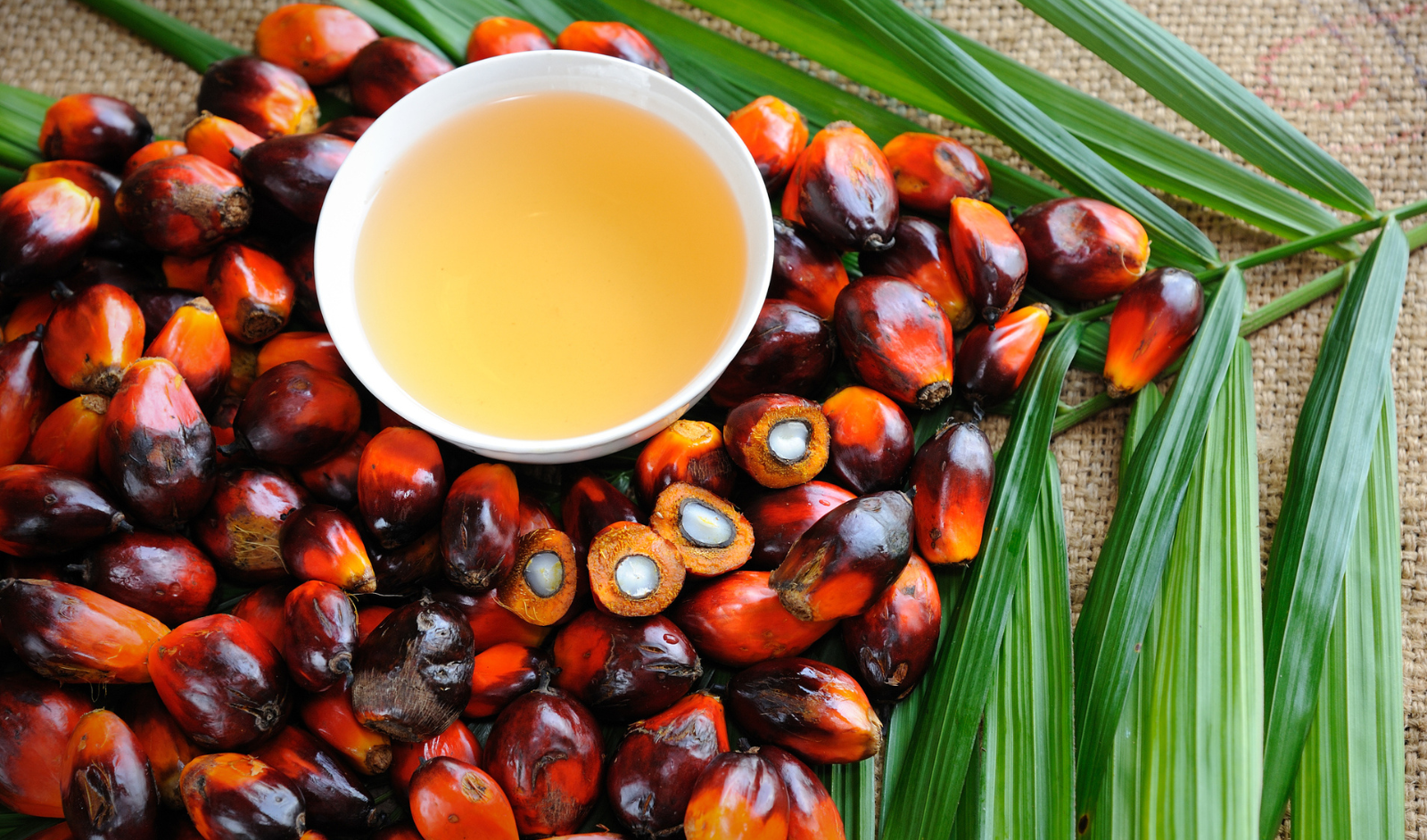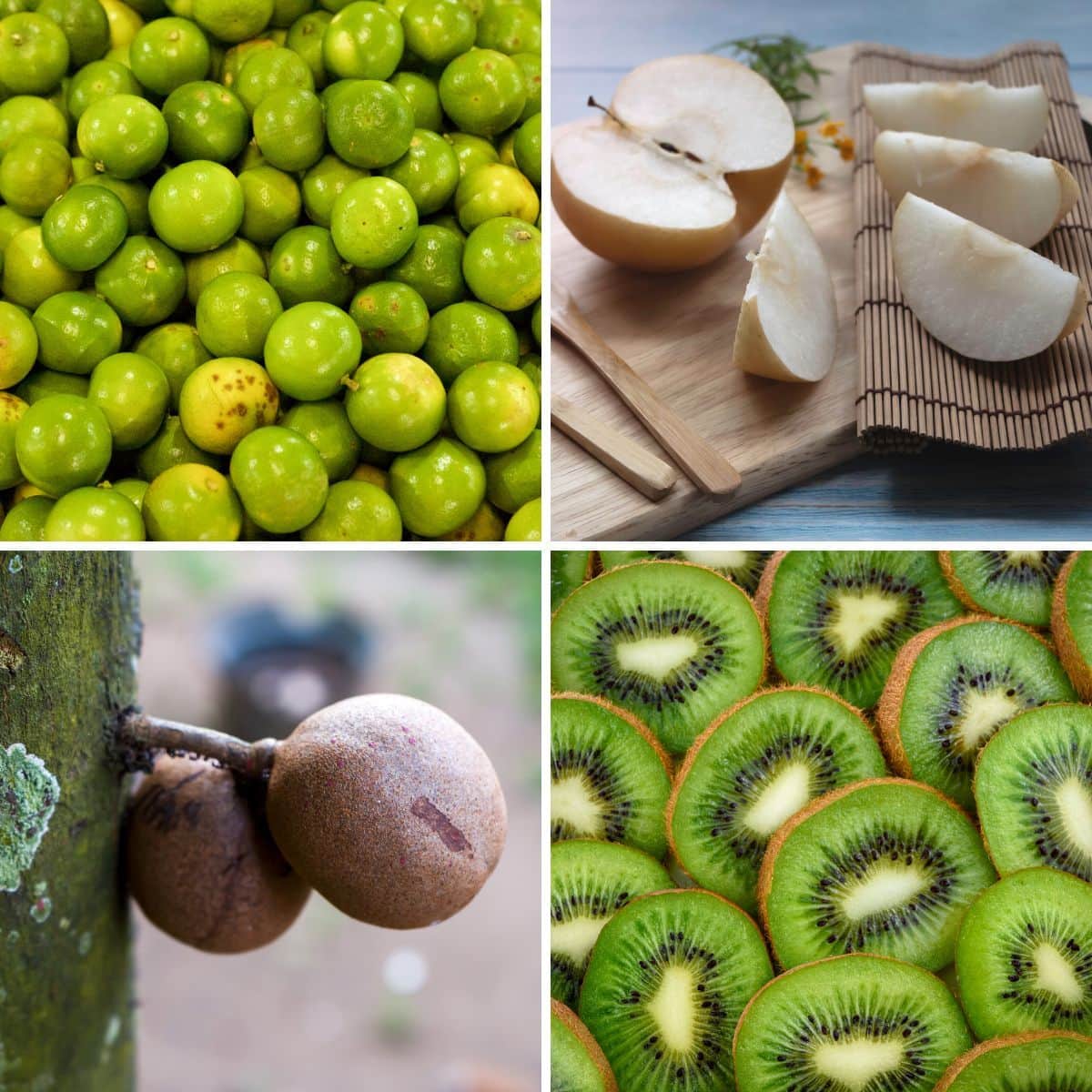What’s Good for Your Health is Good for the Earth

What is Palm Oil Used for?
Palm oil is a common ingredient found in many foods, including pizza, chocolate, baked goods, margarine, instant noodles, cooking oil, and nut butters. A versatile oil, palm oil helps spreads be spreadable, and gives products a longer shelf-life as it resists oxidation. You’ll also find palm oil in cosmetics (deodorant, shampoo, moisturizer, toothpaste, lipstick). According to the World Wildlife Federation, palm oil is used in nearly 50% of all packaged products in supermarkets.
What Food Contains Palm Oil? 10 Popular Products You (May) Buy that Contain Palm Oil
- Chips
- Chocolate
- Cookies
- Dairy-free cheeses
- Ice cream
- Lipstick
- Packaged bread
- Packaged pastries
- Shampoo
- Soap
Why is Palm Oil so Popular?
The United States Food and Drug Administration’s ban on trans fats in 2015, (due to its link to adverse health impacts), pushed corporations to seek out another oil to create their shelf-stable, ideally textured, processed foods. Palm oil yields nearly four times more than other vegetable oils at similar production costs, and has favorable characteristics for the processed food industry (high smoke point, semisolid at room temperature, slow to oxidize or become rancid). These clear advantages to the processed food industry have made palm oil popular. But, at what cost?
What’s the Problem with Palm Oil?
Consumer demand for products that contain palm oil is a major force driving deforestation in areas of the world that host the most biodiverse forests. Home to orangutans, rhinos and elephants, forests in Malaysia and Indonesia are being cut down. (Indonesia and Malaysia grow about 85% of global supply of palm oil.) Converting these rich peat soils is adding greenhouse gasses in the atmosphere, contributing to global warming.
By scaling back your palm oil usage, you can improve your health, and the environment.
Is Palm Oil Healthy?
Palm oil contains a higher saturated fat content than other vegetable oils. Eating products that contain palm oil elevates cholesterol (LDL and HDL cholesterol) compared to vegetable oils, according to a scientific review of human clinical trials. That’s concerning, as the World Health Organization has noted the evidence between saturated fat consumption and cardiovascular disease is convincing. Although some research contests some of the palm oil results, a multi-country analysis found a significant relationship between palm oil consumption and higher rates of death from ischemic heart disease. (And, yes – even organic palm oil is not a good choice for your health.)
Is Palm Oil the New Tobacco?
While the dangers of tobacco, alcohol and sugar are clearly preached by health experts, researchers say palm oil should be on this list. Palm oil creates some of the pleasurable textures and shelf stability of ultra-processed foods – the rise in sales of unhealthy ultra-processed foods and drinks has experts raising concerns it is undermining prevention and control of non-communicable diseases (heart disease, diabetes, metabolic syndrome).
Studies show eating ultra-processed foods harms your health: these foods are palatable, promoting overeating; the low nutritional value impacts physiology in ways that facilitates the development of obesity and type 2 diabetes. Surprisingly, a healthier way to eat, is more food – low calorie dense food, that is. “Eat more foods that are low calorie dense – they fill you up, and keep you feeling full,” explains Registered Dietician Lon Ben-Asher of the Pritikin Center. Low calorie dense foods include fruits and vegetables, well-known for their nutritional value. Foods that are high in calorie density tend to be dry and/or fatty. Butter, oils, spreads, sugar, dry bread, nuts, seeds, dry cereals, crackers, dried fruits and avocados are examples of high calorie density foods.
Should I Boycott Palm Oil?
You shouldn’t eat palm oil. But, avoiding palm oil-containing products may be hard – try going a day without using it. Palm oil is used in many soaps, shampoos and lipstick. Plus, some experts argue that a full boycott may not the best solution as it could convert demand to make these household products with another vegetable oils, leading to further environmental harm.
Orangutan populations have declined 50% due to palm oil production.
What’s the Solution for Palm Oil?
Palm oil is an incredibly efficient crop. Palm oil produces more oil per land area than other vegetable oils. Thus, palm oil is a more sustainable crop for the planet. Encouraging responsible and sustainable palm oil production is a realistic global solution we can all be a part of. There is a sustainable certification program (labelled on products as RSPO) for conscious consumers.
What’s Good for Your Health, Is Good for the Planet
Skip the palm oil containing foods – it’s a healthy choice, according to Registered Dietician and Certified Diabetes Educator, Kara Burnstine of Pritikin. “We live in America, we eat a lot of packaged foods here, and it’s hard to try to find the best among the worst of them. If it doesn’t have a nutrition label (in other words it grows from the ground or a tree), that’s great – you already know it’s good for you.” Following the advice of Pritikin’s Registered Dieticians can have a positive impact on the planet, according to research. In an astounding report in the Proceedings of the National Academy of Sciences noted foods known to promote human health (plant-based, whole foods) tend to have low environmental impacts. In other words, it’s time to ditch the palm oil from your diet – it’s a healthy choice for you and the planet!
You may be unaware of what you are eating as palm oil derivatives can be listed in any one of its 200 alternate names.
How to Eat Healthier
A plant-based diet (sans tropical oils) is best for you and the planet. You don’t need to add fats, especially palm oil or trans fats, into your diet to have food that tastes good. Food can taste amazing without added fat! A stay at Pritikin will transform your palate, and inspire a way of eating that’s delicious, exciting and healthier. If we can help the planet make a shift towards more plant-based eating, it would not only improve our health, as shown in research papers.
A two-week stay at the luxurious Pritikin Center in tropical Florida, is an all-inclusive personally tailored health experience that includes educational sessions (luncheons, cooking classes, label reading seminars, hands-on grocery store excursions) along-side Registered Dieticians, chefs and other experts how to transform to a healthier lifestyle. For guests desiring a more medically-supervised wellness retreat, talk to us about The Pritikin Longevity Program.

To Learn More About a Stay at Pritikin
Call 888.254.1462 or
References:


